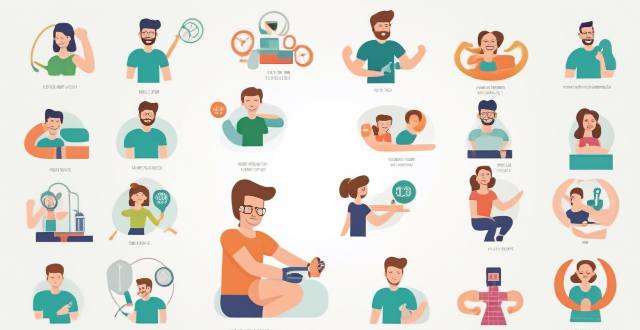The article discusses the impact of sports culture on youth development, highlighting its benefits in physical health, mental well-being, social skills, and emotional growth. Participating in sports activities helps young people improve their fitness levels, motor skills, self-esteem, stress management, teamwork, leadership skills, cultural exchange, resilience, goal setting, and achievement. Encouraging young people to participate in sports can help them become well-rounded individuals who are better prepared for adulthood.

The Impact of Sports Culture on Youth Development
Sports culture plays a significant role in the development of young individuals. It not only promotes physical health but also has a profound impact on their mental, social, and emotional well-being. In this article, we will discuss the various ways in which sports culture influences youth development.
Physical Health Benefits
Improved Fitness Levels
Participating in sports activities helps young people improve their fitness levels by increasing cardiovascular endurance, strength, flexibility, and coordination. This leads to better overall health and reduces the risk of chronic diseases such as obesity, diabetes, and heart disease.
Enhanced Motor Skills
Sports culture encourages young people to develop motor skills such as running, jumping, throwing, and catching. These skills are essential for everyday activities and can help them perform better in other areas of life.
Mental Health Benefits
Increased Self-Esteem
Participating in sports can boost a young person's self-esteem by providing them with a sense of accomplishment and pride. Achieving goals, improving skills, and receiving recognition from coaches and peers can all contribute to increased self-confidence.
Reduced Stress and Anxiety
Engaging in physical activity releases endorphins, which are natural mood enhancers. This can help young people manage stress and anxiety more effectively, leading to improved mental health.
Social Benefits
Teamwork and Cooperation
Sports culture teaches young people the importance of teamwork and cooperation. Working together towards a common goal helps them develop communication skills, learn to compromise, and build strong relationships with others.
Leadership Skills
Participating in sports provides opportunities for young people to take on leadership roles, such as team captain or coach. These experiences can help them develop leadership skills that will be valuable in their future personal and professional lives.
Cultural Exchange
Sports events often bring together individuals from different backgrounds and cultures. This exposure to diverse perspectives can help young people develop empathy, understanding, and respect for others.
Emotional Benefits
Resilience and Perseverance
Sports culture teaches young people the value of resilience and perseverance. Facing challenges and setbacks in sports can help them develop coping mechanisms that they can apply to other areas of life.
Goal Setting and Achievement
Participating in sports encourages young people to set goals and work towards achieving them. This process can help them develop discipline, focus, and determination, which are essential qualities for success in all aspects of life.
In conclusion, sports culture has a profound impact on youth development by promoting physical health, mental well-being, social skills, and emotional growth. Encouraging young people to participate in sports activities can help them become well-rounded individuals who are better prepared to face the challenges of adulthood.